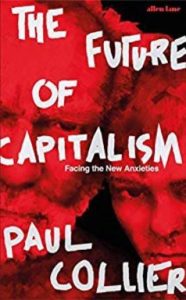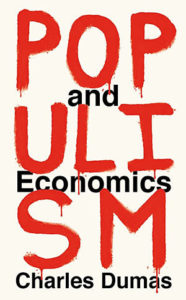 France is the latest European country to experience an upsurge of anti-elitist sentiment ripe for exploitation by populist or illiberal forces.
France is the latest European country to experience an upsurge of anti-elitist sentiment ripe for exploitation by populist or illiberal forces.
The demonstrators known as gilets jaunes — “yellow vests,” named after the reflective safety gear they wear —are repeatedly, and incorrectly, described as having “emerged from nowhere,” notes analyst Anne Applebaum, a board member of the National Endowment for Democracy.
“[I]t’s important to find ways to persuade these spontaneous new anti-politics movements to participate in more formal institutions, to join in more formal debates, to take part in the bargains and compromises required in a contemporary democracy,” she writes for The Washington Post. “Nor are these problems for the French alone: Most of the rest of the democratic world is or will face the same kinds of challenges. If presidents, parliaments, existing parties and existing institutions can find ways to listen to them, to incorporate them and change with them, then democracy will survive in the 21st century.”
Such discontent in high-income western countries is examined by one of the world’s most influential development economists intent on exposing the two breeds of charlatans — charismatic populists and ideologues of the left and right— who exploit frustration and despair, The FT’s Martin Wolf writes.
“Capitalism needs a future because it is the only system we have that is capable of delivering rising mass prosperity,” according to Sir Paul Collier, Professor of Economics and Public Policy at the Blavatnik School of Government at the University of Oxford.
 “But capitalism does not work on autopilot. What has happened in recent years is that one of the ideologies that has captured public policy is a market fundamentalism which believes that capitalism does work on autopilot. But it never has.”
“But capitalism does not work on autopilot. What has happened in recent years is that one of the ideologies that has captured public policy is a market fundamentalism which believes that capitalism does work on autopilot. But it never has.”
“Ideology is a menace,” Collier contends in his book The Future of Capitalism. Rejecting the illusions of ideologues and populists, he suggests pragmatic, provocative and perceptive ways to deliver widely shared prosperity, by restoring an ethical basis to politics, companies and families. His starting point is one on which surely everybody agrees, The FT’s Wolf adds:
“Deep rifts are tearing apart the fabric of our societies. They are bringing new anxieties and new anger to our people, and new passions to our politics.” He adds: “The social bases of these anxieties are geographic, educational and moral.” The biggest rifts, argues Collier, are between the highly educated and the less educated and also between the cosmopolitan metropolises and declining provinces. Yet, while “both ideologues and populists thrive on the anxieties and anger generated by the new rifts, they are incapable of addressing them”.
“As these divides deepen, we have lost the sense of ethical obligation to others that was crucial to the rise of post-war social democracy,” Collier contends. “So far these rifts have been answered only by the revivalist ideologies of populism and socialism.”
 Representative democracies are endangered by populism because elites have underestimated the consequences of social fragmentation for the cultural conditions of democracy, argues Christine Landfried, Professor emerita of Political Science at the University of Hamburg.
Representative democracies are endangered by populism because elites have underestimated the consequences of social fragmentation for the cultural conditions of democracy, argues Christine Landfried, Professor emerita of Political Science at the University of Hamburg.
Such cultural conditions are the appreciation of democratic institutions, trust in political elites, an effective public sphere, a sense of belonging to society, tolerance, and the recognition of difference, adds Landfried, a Senior Fellow at the Hertie School of Governance. The destruction of these cultural foundations—by fragmentations such as the gap between the rich and the poor, the divide between high impact international politics and low levels of democratic participation, and the alienation between elites and citizenry—has been neglected.
For Collier, the period of social democratic hegemony that lasted, broadly, from 1945 to 1970 was “glorious,” The New Statesman adds.
“It was when it all came together,” he said. “We inherited a huge asset – a shared sense of purpose coming out of the Second World War, a sense of common endeavor. But it was a wasting asset that needed to be renewed. And both left and right failed to renew it.”
Bankslaughter
 Collier suggests two types of reform: ethical and technical, The FT’s Wolf adds:
Collier suggests two types of reform: ethical and technical, The FT’s Wolf adds:
- His ethical remedies move towards re-establishing his core belief in mutual obligation at all levels: global; national; corporate; and familial. The idea takes the concrete form of re-establishing clubs of reciprocity at the global level; contributory social security at the national level; something like the old co-operative model at the business level; and stronger mutual commitment at the level of families. In this world, a refurbished patriotism linked to place, would unite countries.
- The most intriguing technical proposal Collier advances is for an updated “Georgeism”. The political economist Henry George argued that the foundation of public revenue should be the taxation of rent on land. Collier argues that we need to tax more forms of rent, including that from agglomeration, which now goes to lucky individuals and businesses. He has other provocative ideas: one is a crime of “bankslaughter”, for managers who let their banks collapse.
“I’m a pragmatist, which means you recognise there are no permanent solutions, there is no brave utopia,” Collier told The New Statesman. “Marx, Friedman – forget it. You’ve got to learn from context and work out what’s best in the context.”







